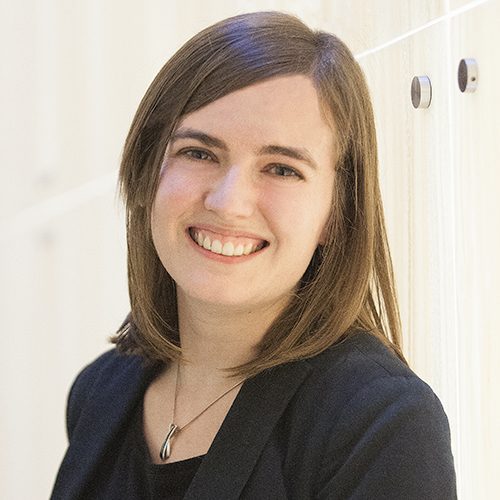Professor Angela Daly was conferred to the Fellowship of the Academy in autumn 2025. She is recognised as an international leader in the regulation and governance of data and digital technologies and was most recently Professor of Law and Technology at the University of Dundee.

Professor Angela DalyFAcSS SFHEA
Angela’s research focuses on how data and digital technologies — including artificial intelligence (AI), the Internet, and 3D printing — interact with legal frameworks including evidence, human rights, and sector-specific regulation. Her key publications include the open access edited collection Good Data (Institute of Network Cultures, 2019), Socio-Legal Aspects of the 3D Printing Revolution (Palgrave, 2016), and Private Power, Online Information Flows and EU Law: Mind the Gap (Hart, 2016).
Angela’s notable leadership roles include chairing an Independent Expert Group for the Scottish Government (2022–23) on Unlocking the Value of Data and leading an independent review of ESRC’s research data policy (2023-24). She holds visiting and adjunct appointments at institutions including Fundação Getulio Vargas (Brazil), University of Milan (Italy) and University of Strathclyde (Scotland/UK).
Why do the social sciences matter?
The social sciences help us to understand and shape the societies we live in. For the various crises our societies are experiencing – climate, conflict, inequality – this understanding is vital to increasing our knowledge of why these problems persist, and to formulating solutions. I am a socio-legal scholar of data and technologies, and the socio-legal perspective contributes to our understanding of the role of law in regulating data and technologies, along with its limitations, as well as how other trends and phenomena in society interact with law and technology.
What do you enjoy most about your work?
I enjoy the diversity of the work that I do and its real-world applications. It has taken me to some interesting places, such as a community event in Dunoon Burgh Hall in Argyll & Bute in Scotland, schools in remote outback Australia, and a makerspace in Shenzhen, China. Through these experiences and in my research and teaching, I am lucky to meet a range of people from different age groups, backgrounds and countries, from whom I learn as well. In fact, learning from others is probably the most inspiring part of my work!
What is the most urgent issue social scientists need to tackle today and within the next three years?
The most urgent issue is the combination of different crises – climate, conflict, inequalities and more – into what is termed the ‘polycrisis’. The interwoven nature of the challenges that we face means that we need to consider the impact of the polycrisis as a whole on societies and not think of issues as singular or individual aspects. This is something I am reckoning with in my own work, as previously I didn’t look much at the issue of conflict, for instance.
In our day-to-day lives as social scientists, another urgent issue is the crisis enveloping UK universities, many of which are under enormous pressures, including existential questions about their very survival in some cases. Social scientists must demonstrate and strongly advocate for the societal value of our research and teaching, and its impact throughout the UK, as well as the importance of the work done by colleagues in other parts of the world too.
What does being a Fellow of the Academy of Social Sciences mean to you?
It is a great honour to be elected a Fellow, in recognition of my research in socio-legal studies and my overall contribution to social sciences in the UK. I will do my utmost to represent, recognise and promote the social sciences, especially socio-legal studies, as a Fellow of the Academy.